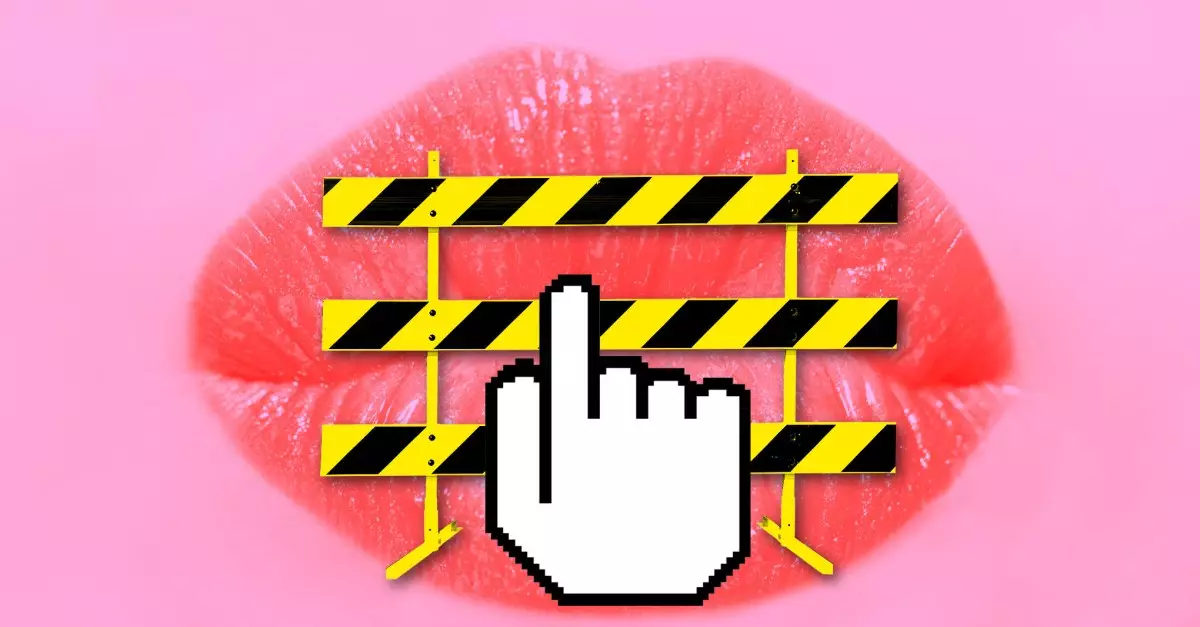In the rapidly evolving landscape of digital content, the sway of payment processors is emerging as an unseen but formidable force. Once considered simple facilitators of transactions, credit card companies and payment gateways now exert significant influence over what is permissible on online platforms. This shift is not only reshaping the boundaries of acceptable content but also raising profound questions about creator autonomy, censorship, and the integrity of digital marketplaces.
The recent upheaval on platforms like Itch.io exemplifies this trend. Traditionally celebrated for its indie-friendly approach, the platform has faced mounting pressure from payment providers to restrict certain types of content, specifically adult and NSFW titles. This crackdown underscores an uncomfortable reality: the financial stability of a platform is now tethered to compliance with the stringent and often opaque policies of third-party payment processors. This dependency effectively curtails creative freedom and may deter new creators from developing niche or controversial content, fearing bans or deplatforming.
Corporate Censorship: A Double-Edged Sword
The strategic decisions made by platforms such as Steam and Itch.io highlight a troubling pattern—financial considerations increasingly overshadow artistic expression. When payment processors signal concerns over content types, platforms face a dire dilemma: comply and risk alienating a segment of their user base or resist and potentially lose vital payment functions. Itsch.io’s swift removal of adult content without prior warning exemplifies this dilemma, illustrating how platforms are capitulating under the weight of these financial gatekeepers.
This introduces a stark form of corporate censorship that is often cloaked in the language of compliance and legality. However, hidden beneath these official narratives is the realization that economic interests are dictating the boundaries of permissible expression. As platforms prioritize alignment with payment processor policies, a climate of self-censorship emerges, stifling diversity of content and marginalizing creators who operate within or challenge societal taboos.
The Echoes of Tumblr and the Dangers of Overreach
History provides a cautionary tale with Tumblr’s 2018 ban on adult content, which was largely attributed to external pressure from credit card companies. This decision led to a significant migration of users, revealing the community’s dependency on platform policies dictated in part by financial institutions. Such overreach not only silences marginalized voices but also curtails the artistic and cultural expressions that flourish in less regulated environments.
The current situation with Itch.io echoes this pattern, posing a risk that platforms may sacrifice their core ethos of open creative expression for short-term financial security. The lack of clear communication and comprehensive guidelines about permissible content leaves creators in limbo, fostering an environment of uncertainty and fear. As creators scramble to adjust their content or seek alternative venues, the community’s diversity and vibrancy risk being eroded, replaced by homogenized content curated to satisfy corporate and financial demands.
The Future of Freedom in Digital Markets
This dynamic raises fundamental questions: Will digital marketplaces become shadowed by an omnipresent financial censorship? And at what cost to innovation, expression, and consumer choice? The reliance on external payment processors as arbiters of content permissible on these platforms essentially transforms technical infrastructure into gatekeeping machinery. This shift threatens to undermine the very principles of open internet and free expression that once fueled the digital revolution.
In navigating this terrain, creators and consumers must critically assess who benefits from these power dynamics. While the need for secure and reliable payment options is undeniable, the way platforms and payment processors wield this influence demands greater transparency and accountability. Without safeguards, the risk is that a small handful of corporate interests will suppress entire genres and communities, stifling the cultural richness that makes the gaming industry vibrant and diverse.
As the landscape continues to evolve, it becomes crucial for advocates of free expression to push for policies that balance financial stability with creative freedom. Only through vigilant oversight and unwavering principles can the gaming and digital content communities resist the encroachment of censorship masked as compliance. The fight for an open marketplace—and, by extension, an open culture—must remain fierce, mindful of history’s lessons and the essential role of independent voices in shaping our digital future.


Leave a Reply